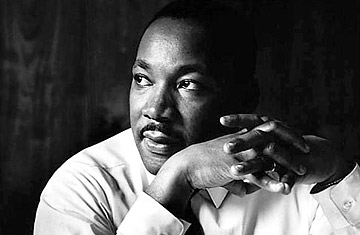
(9 of 11)
A Different Image. The most striking aspect of the revolt, however, is the change in Negroes themselves. The Invisible Man has now become plainly visible—in bars, restaurants, boards of education, city commissions, civic committees, theaters and mixed social activities, as well as in jobs. Says Mississippi's N.A.A.C.P. President Aaron Henry: "There has been a re-evaluation of our slave philosophy that permitted us to be satisfied with the leftovers at the back door rather than demand a full serving at the family dinner table." With this has come a new pride in race. Explains Dr. John R. Larkins, a Negro consultant in North Carolina's Department of Public Welfare: "Negroes have a feeling of self-respect that I've never seen in all my life. They are more sophisticated now. They have begun to think, to form positive opinions of themselves. There's none of that defeatism. The American Negro has a different image of himself." Moreover, says U.C.L.A.'s Negro Psychiatrist J. Alfred Cannon, "We've got to look within ourselves for some of the answers. We must be able to identify with ourselves as Negroes. Most Negro crimes of violence are directed against other Negroes; it's a way of expressing the Negro's self-hatred. Nonviolent demonstrations are a healthy way of channeling these feelings. But they won't be effective unless the Negro accepts his own identity."
Where most Negroes once deliberately ignored their African beginnings and looked down on the blacks of that continent, many now identify strongly with Africa—though not to the point where they would repudiate their American loyalties—and take pride in the emergence of the new nations there. Some Negro women are affecting African-style hairdos; Negroes are decorating their homes with paintings and sculpture that reflect interest in African culture. There has been a decline in sales of "whitening" creams, hair straighteners and pomades, which for years found a big market among Negroes obsessed with ridding themselves of their racial identity.
The Lull. There has been an inevitable lull in visible civil rights activity since the March on Washington, and this has disheartened some Negroes. Says Richard L. Banks, secretary of the Governor's advisory committee on civil rights in Massachusetts: "When the Negroes are not in the streets any more, I'm awfully afraid that some of the people who responded will forget it." But the lull is deceptive, and it is probably best described by James Baldwin. Says he: "This lull is like a football huddle. People are reassessing. They are planning. We will flush the villain out." In fact, most Negro leaders are waiting for the outcome of the civil rights bill in Congress, and are counseling patience until at least the end of this month. They are also carefully gauging the position of Lyndon Johnson. So far, the President's resolute support of the civil rights bill has been encouraging. Says the Rev. L. Sylvester Odom of Denver's African Methodist Episcopal Church: "Personally I wouldn't be surprised if President Johnson gets more out of Congress than President Kennedy could have. He may not get as deeply into the hearts of the people, but he may do pretty well with
